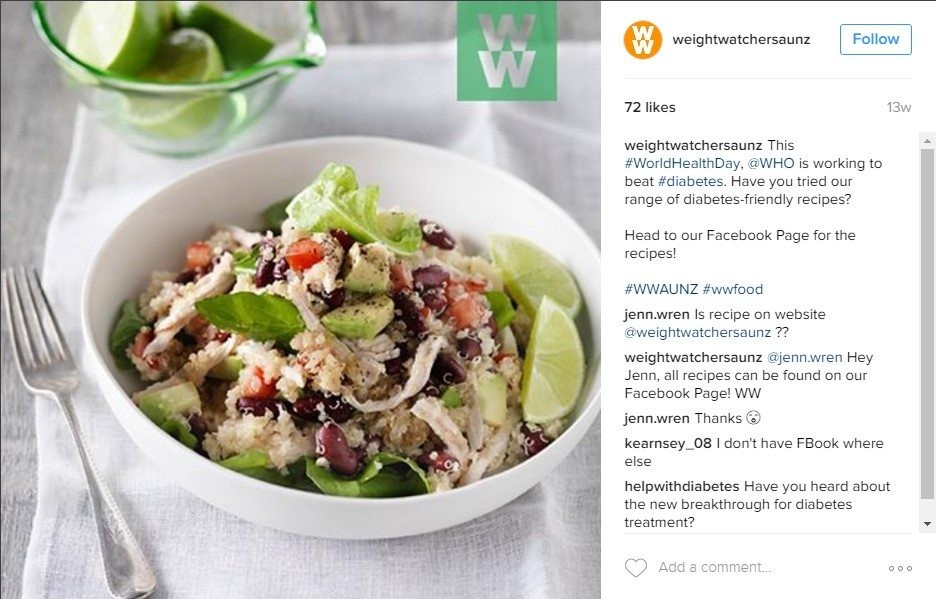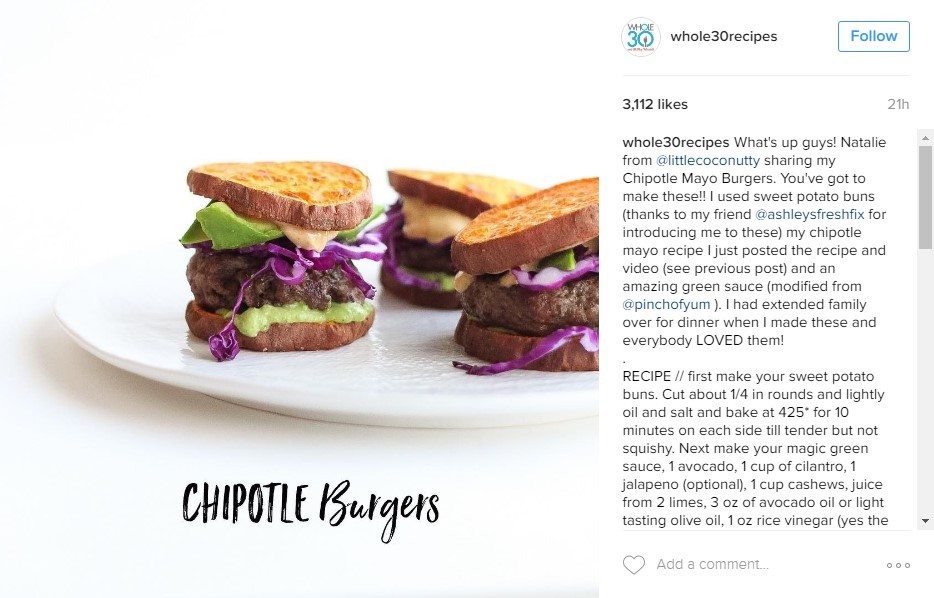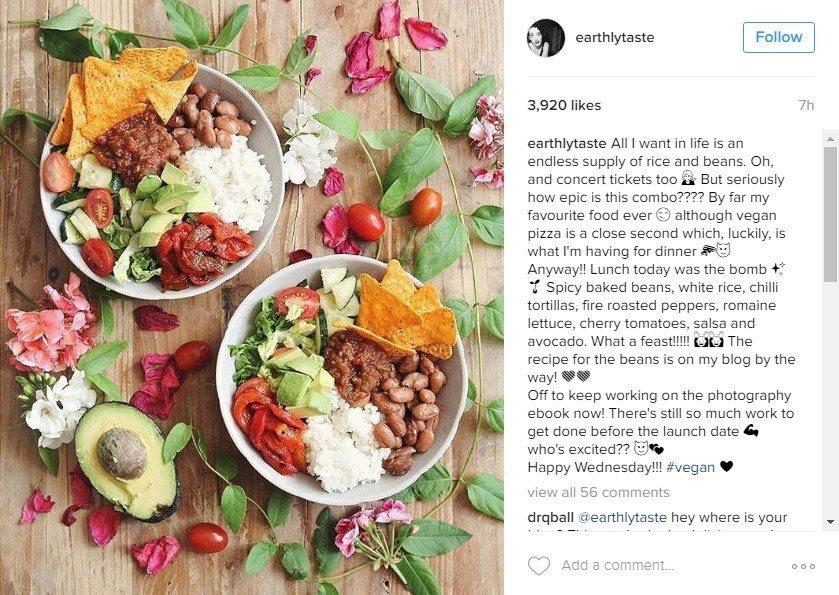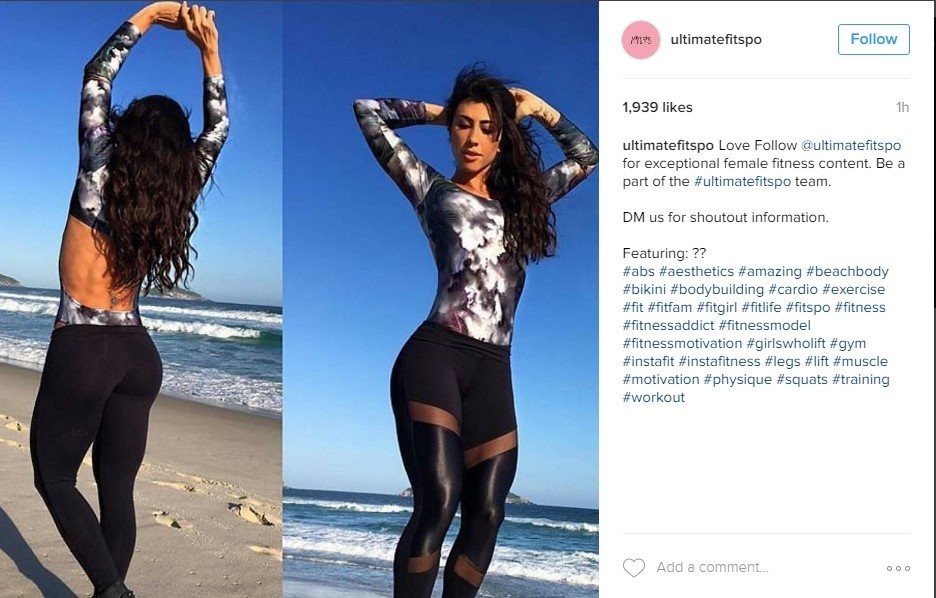Instagram is a thriving engine for visual inspiration and dieters all over the world have flocked to the social media platform in their quest to get thin.
Gone are the days where you would stick up an inspirational magazine cut-out on the fridge encouraging you to tough out an exercise regime or a diet. And there is no longer a need to attend a weekly group meeting to discuss your diet challenges and weight loss results.
Instagram is a buzzing community of dieters and health fanatics
Today, online communities of like-minded individuals are buzzing on websites like Instagram to promote a healthy lifestyle and support each other through their weight loss journey.
Over 3.5 million photos have been posted on Instagram with the #WeightWatchers. Scroll through the gallery of square images and you’ll find healthy food, inspirational messages and plenty of before and afters. Globally, Weight Watchers fans are tracking their progress, both wins and failures. The Australia and New Zealand Weight Watchers Instagram has over 11,000 followers alone.

The Whole30 hashtag is another flourishing Instagram page, where over 325,000 devotees of the program share photos of their healthy, whole food meals. Among the gluten-free, dairy-free, sugar-free and alcohol-free pictures, you’ll find a few progress shots and workout images to keep people motivated.

The co-creator of the Whole30 program, sports nutritionist and fitness instructor Melissa Hartwig, says online communities are helping people through health journey.
“Not only do you want to feel like you belong to something bigger than yourself,” Ms Hartwig says, “but it’s important to stay connected so you have the accountability and motivation.”
Scour through dieting Instagram hashtags like #paleo (7,631,868 posts), #fitfam (46,675,680 posts), and #vegan (27,615,078 posts) and you’ll be greeted with endless colour images of nutrition, workout tips and fitness inspiration.


Study finds, being active in online communities can improve weight loss
There are very few studies which look into why people wanted to lose weight are flocking to online communities, but one has found that being active with other dieters can help improve weight loss.
The “‘Friending’ Your Way Thin” report published by Northwestern University’s Feinberg School of Medicine analysed a year worth of anonymous data from CalorieKing.com, another digital weight-loss community. The data of 27,382 members including their age, gender, weight, height, activities, friend requests and online communications were observed. The actual content of the messages between members was not reviewed.
Over a six-month period, those Calorie King dieters who connected with ten or more people lost an average of 8 percent body weight, compared to an average of 5 percent weight loss for those who had between two and nine friends. Those who watched but didn’t participate in conversations on the website experienced an average 4 percent weight loss.
“There is an almost Facebook-like social network system in this program where people can friend each other and build cliques,” said Luís A. Nunes Amaral, senior author of the study. “In this case, we found the larger your clique, the better your outcomes.”
A 2012 study by researchers of Northwestern also revealed not all dieters wanted to share their weight loss stories. As part of the study 96 people were provided access to a chat group encouraging a weight-loss competition. Most people seem reluctant to share their personal weight loss experience, and the few people who did were ignored or worse, insulted by other members when they did.
Bonnie Spring, professor in preventive medicine at the Northwestern University’s Feinberg School of Medicine, says Instagram may be successful at acting as a dieting platform because it is “a little bit less socially connected” than other online community sites. This provides valuable privacy and limits the interaction between other members.
“Some people feel highly motivated and egged on to succeed when they can post their accomplishments on a leader board and compare their progress to others’,” Dr. Spring said. “Others cave under that kind of pressure and public scrutiny.”
Online communities acting as self-promotional tools
While the studies have found that being highly embedded in online communities can help with self-monitoring and inspire greater weight loss results, there is a tendency for members to promote the perfect picture. Really, are you going to be taking photos of the time you strayed from the diet and caved into a sugar hit or a before and after showing weight gain, not loss?
The German researchers of Berlin’s Humboldt University and Darmstadt’s Technical University, studied 600 users of Facebook and found those who browsed the online community without contributing were more likely to feel socially isolated and miserable afterwards.
While some say social media platforms can help motivate and inspire people to improve their health and wellbeing, others suggest the sites provided a distorted view of a person’s life.
“If you see beautiful photos of your friend on Instagram,” says Hanna Krasnova of Humboldt University, “one way to compensate is to self-present with even better photos, and then your friend sees your photos and posts even better photos, and so on. Self-promotion triggers more self-promotion, and the world on social media gets further and further from reality.”






